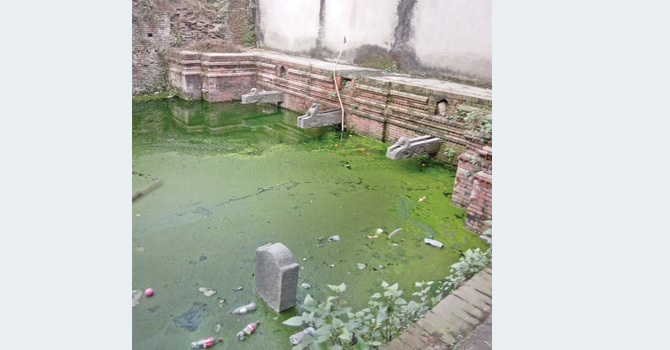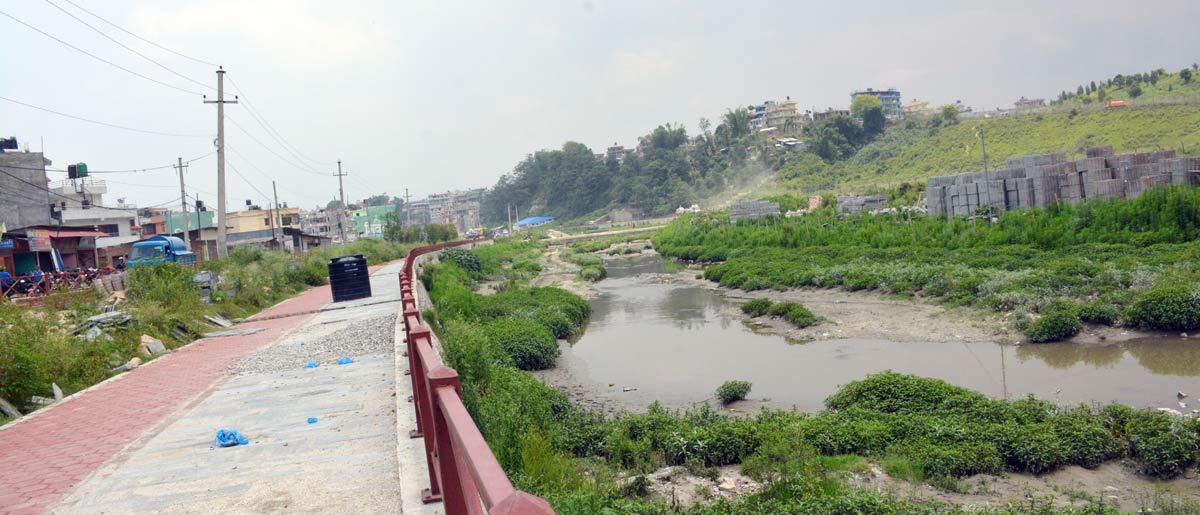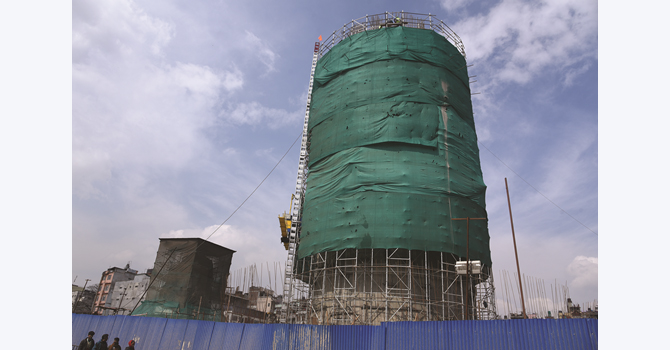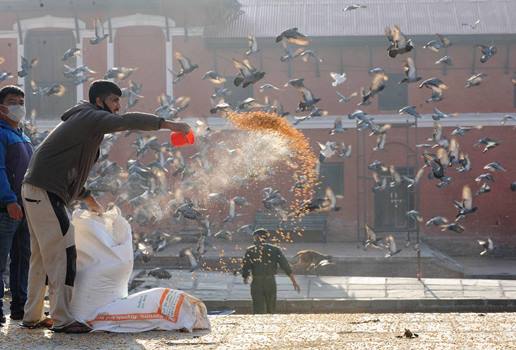Water, snow of high mountains contaminated with plastic particles

By Binu Shrestha
Kathmandu, Jan. 12: Mount Everest and other mountains of the nation are at high risk of plastic pollution due to excessive use of plastic-packed food and materials by climbers. This could turn the mountains into micro plastic hazard regions.
Micro plastics were found in snow and stream water samples on Mount Everest. The highest micro plastics were discovered in a sample collected from 8,440 meters’ elevation, according to a study report by Centre for Public Health and Environmental Development (CEPHED).
The study shows that micro plastics detected were approximately 30 micro particles per liter in snow and 1 micro particles in steam water, and majority of the were fibrous.
Most micro plastics were polyester fibers, likely from clothing and equipment.
National delegation and concerned government agencies should raise voice in the UN Secretariat to include the high mountain plastic pollution in the upcoming UN plastic pollution treaty and address the issues, said Ram Charitra Sah, CEPHED executive director and environment scientist.
Speaking at a national awareness raising workshop on inclusion of high mountain plastic pollution issue in UN plastic pollution treaty and toxic lifecycle of plastics in Nepal on Tuesday, Sah urged the concerned government agency to raise the issue for its inclusion and to address the issue properly in the upcoming UN treaty, which is going to be discussed from February 28 to March 3 at United Nations Environment Assembly (UNEA) in Nairobi, Kenya.
The issue of micro plastic would be hazardous in the mountain regions in the coming days because plastic pollution is a global issue, not only of Nepal. The plastics which fly from other nations enter Nepal and they get converted into micro plastic, so only blaming mountain climbers and local areas people for the growing plastic pollution in mountain regions is not appropriate, said Dr. Rabindra Dhakal, Faculty of Technology of Nepal Academy of Science and Technology (NAST) Chief.
The high use of plastic has created problems for government bodies for its sustainable management. In the name of plastic management, common people along with municipalities have been burning it in open space, he said.
Current plastic recycling method applied by common people to manage plastic garbage is wrong, but plastic can be easily recycled using the safe technology, he said. The NAST has already introduced the technology to produce 1 liters petrol from 1 kg plastic which is one of the sustainable solutions to reduce plastic pollution, he said.
Ramsahay Prasad Yadav, Minister for Forest and Environment (MoFE), said that the issue of high mountain plastic pollution would be raised strongly in the upcoming UN plastic pollution treaty to address the issue.
In February 2022, countries will meet to discuss a global instrument on plastics largely focused of waste and marine litter.
New global controls are needed especially for low-and-middle-income countries that are not primarily responsible for plastic production and consumption and do not have the capacity to manage the risks associated with toxic chemicals.
Recent News

Do not make expressions casting dout on election: EC
14 Apr, 2022
CM Bhatta says may New Year 2079 BS inspire positive thinking
14 Apr, 2022
Three new cases, 44 recoveries in 24 hours
14 Apr, 2022
689 climbers of 84 teams so far acquire permits for climbing various peaks this spring season
14 Apr, 2022
How the rising cost of living crisis is impacting Nepal
14 Apr, 2022
US military confirms an interstellar meteor collided with Earth
14 Apr, 2022
Valneva Covid vaccine approved for use in UK
14 Apr, 2022
Chair Prachanda highlights need of unity among Maoist, Communist forces
14 Apr, 2022
Ranbir Kapoor and Alia Bhatt: Bollywood toasts star couple on wedding
14 Apr, 2022
President Bhandari confers decorations (Photo Feature)
14 Apr, 2022









